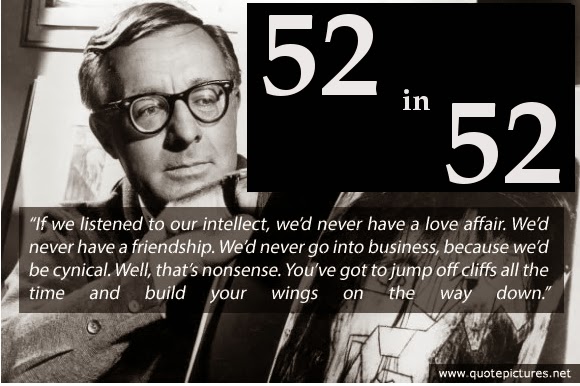In part 1 we covered what a startup is and the four best practices to help get that startup moving, with definitions tweaked to work for the entertainment industry (although those tweaks may work for other industries as well). Having an idea of what to do is important and positive and helps get all the work off on the right foot. That being said, it is nice to also know what pitfalls to avoid so you can do your best not to fail on accident. Just like articles on what to do to help your startup succeed there are as many, if not more, articles about what makes a startup fail.
Thinking about it, that makes sense since, by definition, a startup has no guarantee of success so many of them (most of them even) fail. Entertainment careers are no different. In this life you hear “no” a lot more than “yes.” You can have a series go to pilot and then not get picked up. You can be edited out of a commercial after you’ve already shot it. For resilience we all say that it’s, “just part of the biz” but, part of the biz or not, that much rejection can be draining. So the following are four mistakes that can kill your startup inspired by and paraphrased from this article: The 18 Mistakes That Kill Startups. Why are there not 18? Because not all of the mistakes really apply to my topic. Sure, I could shoehorn in a few descriptions and get all symbolic with the language, but that isn’t the goal. The goal is to have strong points that are easy to identify and avoid to keep things moving in a positive career direction. But if you want to read all 18, and I suggest you do, go to the link.
Before we get started with the actual four mistakes, I’d like to point out a overarching general mistake that the author Paul Graham points out that also makes very good sense in an entertainment career:
“In a sense there’s just one mistake that kills startups: not making something users want. If you make something users want, you’ll probably be fine, whatever else you do or don’t do. And if you don’t make something users want, then you’re dead, whatever else you do or don’t do. So really this is a list of (sic) things that cause startups not to make something users want. Nearly all failure funnels through that.”
In his explanation let’s trade out the word “user” for “audience.” Entertainment exists to be experienced by people, there isn’t any way around that. As a general rule of thumb: make and do the things you believe in and have passion for. Those are the things that have the best chance of taking off and if they don’t you can at least feel good about the attempt.
Now on to the mistakes:
- Bad Location. The internet and prosumer equipment have really allowed people to make high quality content just about anywhere, but if you want to work on the bigger shows and films (hell even the big online stuff) you need to be in one of the major entertainment hubs: Los Angeles, New York, Atlanta or New Orleans. Although theres also North Carolina, Chicago, Michigan, New Mexico, Oregon and the occasional shoot in Hawaii. And Canada. Puerto Rico is offering some really nice tax incentives so some productions are moving over there… All kidding aside, even with this expansive list there are still very few cities that can actually handle and support a large amount of filming. If you are ok just shooting with your friends and putting it up online then more power to you. Hollywood is decentralizing and I predict that we’re going to see more migration away from Southern California over the next five to ten years, but there will still be industry hubs where the camera crews live and where you can find a guy who can record decent sound. You want those people so you should be where they are.
- Derivative Ideas. Don’t just copy. I know Hollywood does it all the time, but those are the things people make fun of Hollywood for doing. I’m not saying that you can’t have your own spin on an existing idea, but don’t just straight up copy. Here’s an example: Zombies have been the dominate movie monster for over a decade now. There has been zombie everything, but the ones I remember: The Walking Dead, 28 Days Later, and Shaun of the Dead all had unique takes on the genre. You don’t need to be the first person with an idea, but you do need to have a way to make it your own.
- Choosing the wrong platform. This literally came up in conversation today and it seems like something that I talk about with people all the time. There is both a literal and a figurative meaning to “platform.” The literal has to do with distribution of content that you and your team may be creating. When you decide how to get it out to the audience you either need to build to the distribution you have access to or hustle to get the distribution you feel the content requires. For example: I spoke to a buddy just today about their new project that, in my opinion (which happened to be an opinion he shared), needs to be a web release. It is built in tight little vignettes that are great for online audiences and the pieces all combine together into one big narrative that he could release as a stand-alone product and/or send to film festivals. But there is talk about converting it to feature length and trying to get the funding to do a movie version. In my head, at this time with the options available to them, online seems like the no brainer. Doing this project as a television show wouldn’t work, the premise wouldn’t last beyond a season. Doing it as a movie might work, but it would require a heavy rewrite and a massive investment. Right now they have a completed product ready to launch and it would be a shame not to release it. The figurative meaning of “platform” is for the actor. We can trade out “platform” for “type.” One of the biggest complaints that I hear from my casting director friends is that people submit for things that they have no chance of getting. As an responsible auditioning actor you need to be honest with yourself about your type. If you happen to be a strawberry blond skinny guy who does prat falls and makes faces you should not submit yourself for roles where they usually cast Ian Somerhalder. I promise you, Ian Somerhalder is going to get that part. Overall I think the lesson here is to play to your strengths. Swinging for the fences is great and all, but you still need to be smart about it.
- Not wanting to get your hands dirty. This is probably the biggest crime in all of the entertainment business, especially for people new to it. As great as this job is, there is nothing easy about it. If it were easy everyone would do it because it’s awesome. A lot more people could do it, but most are not willing to put in the amount of work that it takes to do it right. Hell, even thirty years later I’m still finding ways that I’m deficient in my efforts. It’s an ever changing business that requires constant effort. If you’re not up for that find something else to do with your time.
Did I miss anything? Are there any best practices that I could have added to part 1? Let me know in the comments.
See you next time.



This, this, all the this!
If you are a creative, this video will sounds very familiar – but it’s a universal message. Lord knows I’ve been down this road a few times. Determination, persistence and touch of naivete is usually enough to win the day – it’s just the “day” in question usually lasts for years.
Share this:
Like this:
Leave a Comment
Filed under actor 101, actor stuff, art, artist, behind the scenes, commentary, doing new things, education, fail, failure, filmmaking, friends, fund raising, general, getting fit, getting started, happiness, how-to, inspiration, jobs, learning experience, making movies, productivity, projects, REVOLUTION, social commentary, video, videos, YouTube